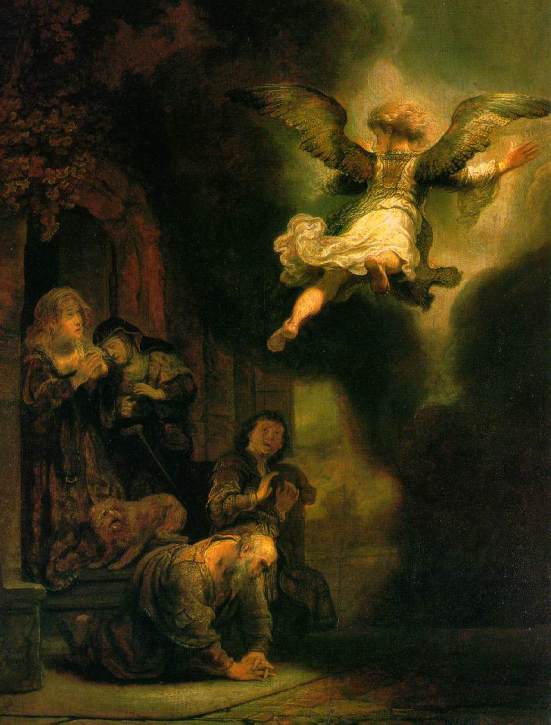
The Book of Tobit is considered apocryphal by Protestants, although it is recognized as part of the biblical canon by the Roman Catholic and Eastern Orthodox churches. Nonetheless, the Protestant confessions, though not recognizing the apocryphal books as canonical, consider it worthy to read “for example of life and instruction of manners,” “as far as they agree with the canonical books.” One gem I’ve recently discovered in one of the apocryphal books was an explicit messianic prophecy in the Wisdom of Solomon 2:12-21.
Tobit’s authorship dates to the fourth century BC, although the history recorded therein is of a godly Israelite man, Tobit, who lived in Nineveh during the Assyrian captivity during the seventh century BC. Tobit dedicates his life to the well-being of his own people, and caring for the poor. Tobit, when he reaches an old age, suffers from illness and his family from poverty, so he commands his son to go on a journey to the region of Media in Persia, to collect money he had deposited there. He demands that his son be accompanied by a kinsman from their tribe. God sends the angel Rafael, who presents himself as a kinsman, to accompany him on this journey.
Tobit, because he is old and becoming increasingly aware of his mortality, provides his son with a few final words of wisdom before he sets off on the journey. This is recorded in chapter 4:3-19. He commands his son to:
• take care of his mother
• always meditate on and keep God’s commandments
• have a charitable attitude towards those in need and provide for the poor
Then in verses 12-13, Tobit commands his son to refrain from all forms of immorality, of which the most important is to
take a wife from among the descendants of your fathers and do not marry a foreign woman, who is not of your father’s tribe; for we are the sons of the prophets. Remember, my son, that Noah, Abraham, Isaac, and Jacob, our fathers of old, all took wives from among their brethren. They were blessed in their children, and their posterity will inherit the land. So now, my son, love your brethren, and in your heart do not disdain your brethren and the sons and daughters of your people by refusing to take a wife for yourself from among them. For in pride there is ruin and great confusion; and in shiftlessness there is loss and great want, because shiftlessness is the mother of famine.
The chapter continues with Tobit commanding his son to:
• not keep the wages of the laborer until the next morning, but pay him on time
• do unto others as he would like them to do unto him
• not succumb to drunkenness
• take heed of the advice of wise men
• praise God at all times and live in dependence upon Him
Tobit was an exemplary man who loved his own nation. He commanded his son to follow in his footsteps. He explicitly considered love for his own people and the avoidance of miscegenation as demanded by God’s Law. It is noteworthy how the moral principles of Tobit are the exact opposite of what Marxist “Christianity” teaches today. Whereas the modern church calls “racism” a sinful form of pride, Tobit regarded not marrying within one’s tribe as amounting to a prideful disdain for the people one has providentially been placed within.
The tale ends happily, with Tobit’s son marrying a kinswoman of his he met in Media and having the privilege to bury his wise father when he dies at an advanced age. The book is definitely worth reading and utilizing in the defense of the orthodox Christian doctrine of ethnonationalism.
| Tweet |
|
|
|




